On December 5th cheers reverberatedacross the country with the news that at the 114th annual convention of the Episcopal Diocese of Los Angeles two women were elected as bishops -- Rev. Diane Jardine Bruce of California and Rev. Mary Douglas Glasspool of Maryland.
While both elections bring their own controversy, Glasspool's keeps the church's issue of queer bishops front and center.
If both women are approved by a majority of bishops, their elections will signal that the U.S. arm of the Episcopal Church is aggressively moving forward on both gender and gay justice.
But for many Episcopalians of color the issue of racial diversity and justice still hangs in the balance as many of their urban ethnic churches struggle to survive. With nearly half of L.A.'s Latino population, concerns arose with the election of two white women over Latino candidates.
"There was this feeling that once an Anglo woman had been elected Friday, maybe we should support a Latino candidate," said the Rev. Brad Karelius, one of the senior priests of the L.A. diocese. "But the two Latino candidates did not have the leadership depth I saw in Mary and Diane."
The election for bishop suffragan of the Diocese of Los Angeles was a fiercely close race between Glasspool and the Rev. Irineo Martir Vasquez of St. George's in Hawthorne, CA.
Given the theologically conservative make-up of the laity and Spanish-speaking congregants of the L.A. Diocese a lot of support went for Vasquez. According to the Rev. Altagracia Perez, rector of Holy Faith Church in Inglewood, CA diversity was an issue for some of the delegates who supported Vasquez's candidacy. However, Glasspool had 153 clergy votes, with 123 needed to win, and 203 lay votes, with 193 needed to win. Vasquez had 87 clergy votes and 177 lay votes.
The issue of diversity in the governance and election of bishops in the Episcopal Church is of great concern to congregants of color in light of shifting racial and ethnic demographics in big urban cities like L.A.
And with the shifting demographics from white to ethnic groups of color the Episcopal Church, perhaps unintentionally, has chosen to build up one ethnic or minority church over another. And, too often, it feels too many ethnic churches of color that they are always pitted not only among themselves, but also against white queers.
more on next page...
\\\
(continued)
For example, the unresponsiveness to dying black urban churches is emblematic of the Episcopal Church's ineptitude to grapple with the ways that racism and classism choke, not only the spiritual life out of a church, but its monetary life as well. With the Episcopal Church's urban landscape continually changing, the denomination has opted to pour its support, money and energy not into these historic black churches but instead into developing urban Latino churches. The gentrification of the urban church by replacing one minority group with another sets up a paradigm of "divide and conquer" that makes neither group feel welcomed, but both expendable.
"Those Latino churches are set up like a 'reservation system' within the Episcopal Church," said Juliana Gutierrez, a lesbian Mexican American who worships in an Episcopal Church in Chicago told me.
Comprised primarily of a migrant population from all over Latin America these newcomers form missionary congregations set up by the Episcopal Church. Unlike parishes, missionary congregations are not freestanding: they cannot call their own rector, and cannot make their own decisions. According to Gutierrez, these missionary congregations have a paternalistic relationship with the Episcopal Church because they are not only dependent on the church for monetary support but also for a place to worship. Often, Episcopal churches seek to remedy the tension by devising "separate but equal" worship hours between Spanish-speaking missionary congregations and English-speaking parishes that must share the same facilities. "The two groups come together only for special events and the Eucharist," Gutierrez said.
I have my own queries for the Episcopal Church, dubbed by many as the "ruling class at prayer," with respect to its urban churches, including:
- Will the Episcopal Church move as aggressively on race issues as it has on lesbian, gay, bisexual, transgender, queer (LGBTQ) issues?
- Can Episcopalians only talk about the welcoming inclusion of its church in the context of women and LGBTQ issues in white face, but can't when the issue is race?
- Does the Episcopal Church's catholicity fall short with people of color because its hegemonic model of being Christian is not only racially white, but it is also theologically and liturgically Anglican?
more on next page...
\\\
(continued)
A joint survey by the Pew Hispanic Project and the Pew Forum on Religion & Public Life reports that the emergence of Latino-oriented churches are changing the country's religious landscape not only in the Catholic Church but also in the Protestant Church.
The survey also reports, "While the prevalence of Hispanic-oriented worship is higher among the foreign born, with 77 percent saying they attend churches with those characteristics, the phenomenon is also widespread among the native born, with 48 percent saying they attend ethnic churches."
The L.A. Diocese began its outreach ministry in the 1940's to Latino immigrants.
Holy Family Church in North Hollywood was the first Latino congregation in the diocese.
Queer Latino Episcopalians like Gutierrez feel torn in a church that has elected either white queer or Latino heterosexual bishops.
Glasspool is fluent in Spanish, has served in urban cities across the country and is not a single-issue cleric. She told a reporter at the annual convention that the church is ready to go beyond "superficial characteristics and boxes in which we put people, to really look at individual people and assess the needs of the diocese and pair them with the gifts and skills that Diane and I each bring. In that sense, in all ways, we are moving to a point where we can look beneath the skin color and any single characteristic and really rejoice in the wholeness of every individual person."
However, for Gutierrez the post-racial revolution hasn't come. Gutierrez wants to see more Latinos in church leadership roles because race still matters.
Read more of Rev. Irene Monroes stories.





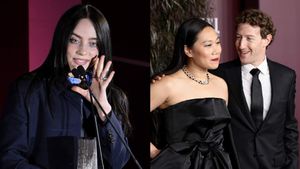



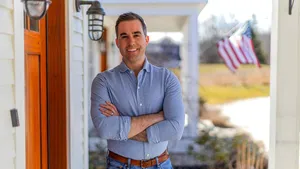







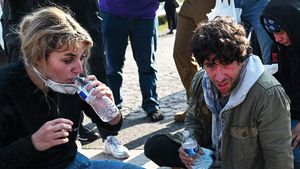







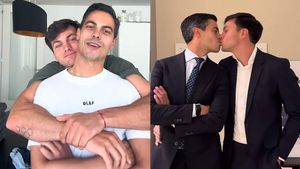








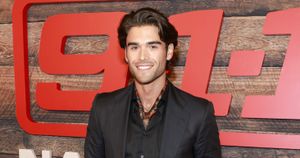


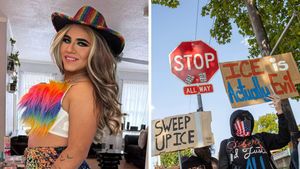


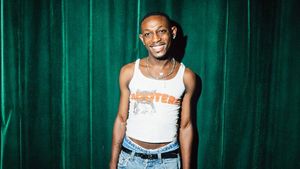


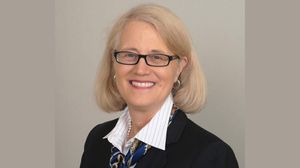










































 Cindy Ord/Getty Images
Cindy Ord/Getty Images

























